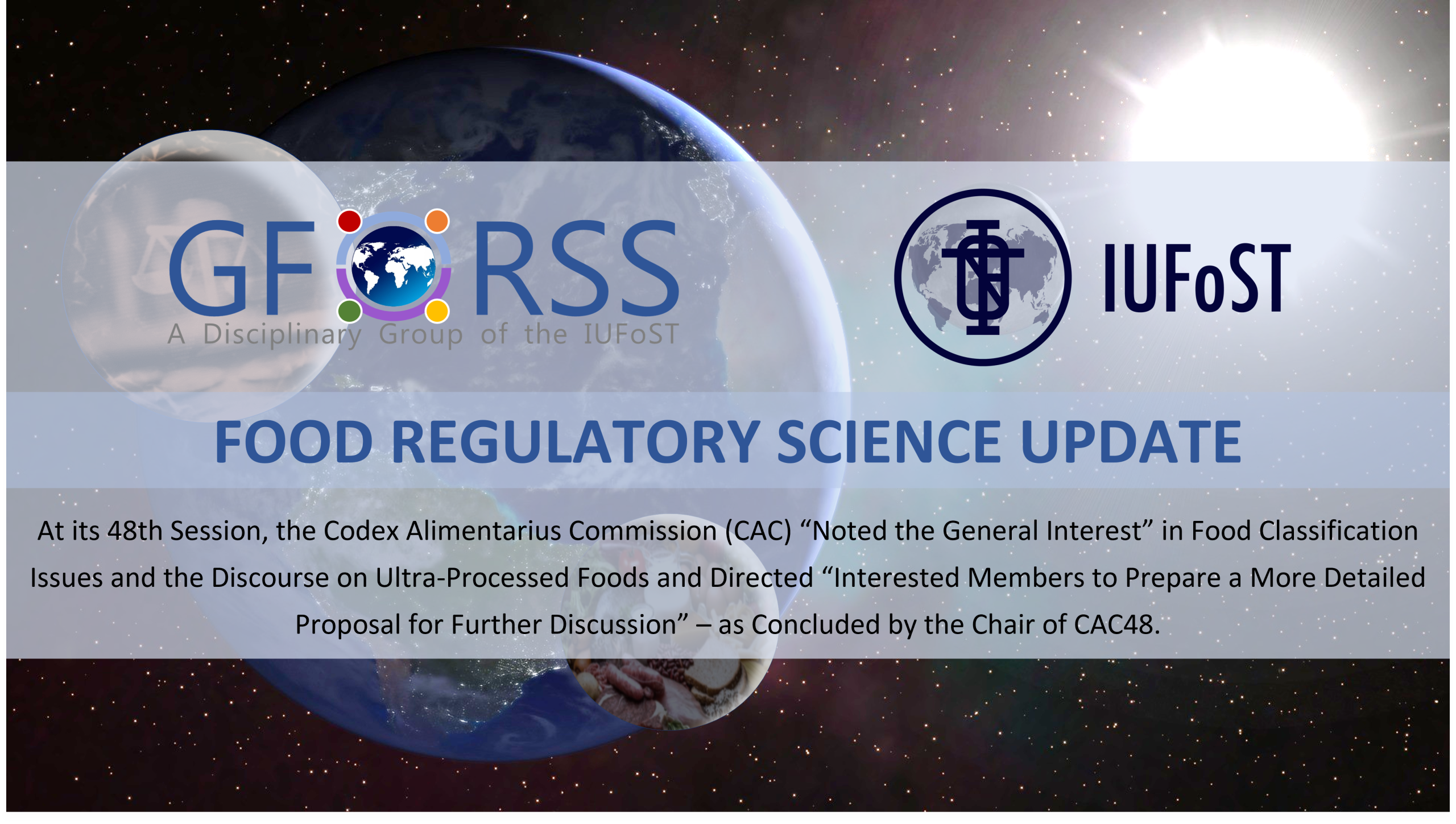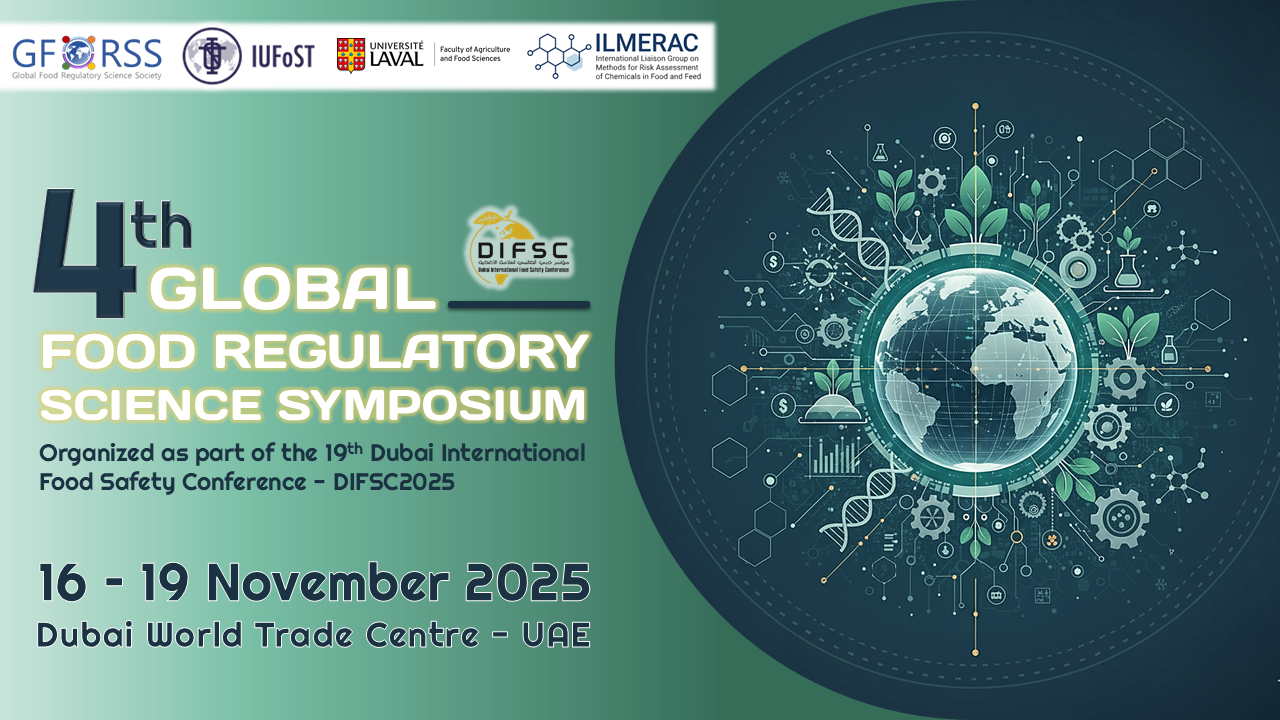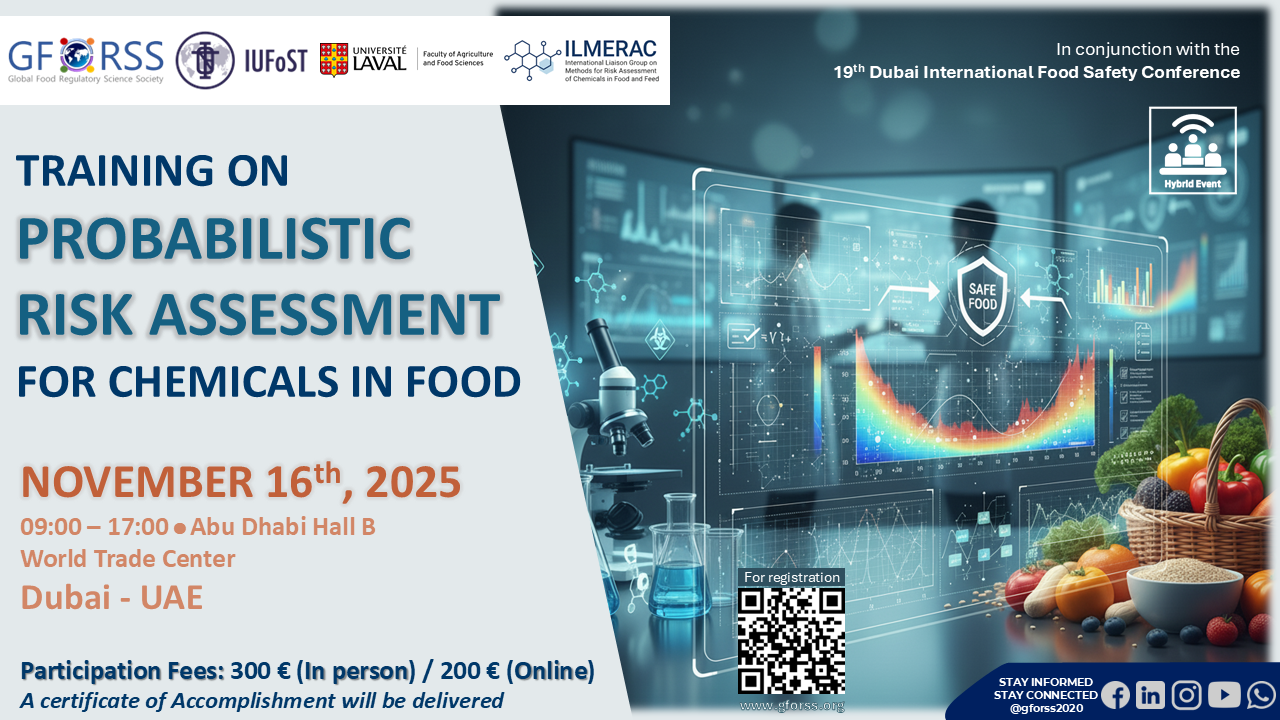CAC48 Conclusion on Food Classification Issues and Ultra-Processed Foods
10-14 November 2025 • Rome, Italy
- CAC48 Conclusion on Food Classification Issues and Ultra-Processed Foods
At its 48th Session, the Codex Alimentarius Commission (CAC) “Noted the General Interest” in Food Classification Issues and the Discourse on Ultra-Processed Foods and Directed “Interested Members to Prepare a More Detailed Proposal for Further Discussion” – as Concluded by the Chair of CAC48.
This conclusion was reached following the Commission’s discussion of the paper introduced by the International Union of Food Science and Technology (IUFoST) under Conference Room Document 26 (CRD26).
At the heart of IUFoST’s proposal is a request for the Codex Alimentarius Commission to provide clear guidance on how discussions on food classification—particularly those related to the concept of “ultra-processed foods”—should be initiated within the Codex structure. The document highlights that Codex, supported by the scientific expertise of FAO and WHO, is uniquely positioned to lead such a dialogue, ensuring coherence, transparency, and scientific rigor.
In his intervention at CAC48, Professor Samuel Godefroy, President of IUFoST, emphasized that “parallel processes or terminology developments outside the Codex framework—however well-intentioned—could lead to discrepancies in definitions, methodologies, and regulatory implications, which may risk increasing confusion among regulators, the food industry, and consumers.”
Responses from delegations varied. Some, such as the United States, suggested referring the matter to existing Codex committees, while the European Union pointed to ongoing work under the World Health Organization (WHO). Other delegations—including China—underscored the importance of basing any food classification scheme on robust and scientifically sound definitions. Indonesia reiterated that Codex should serve as the leading forum for this discussion, given its broad implications. Additional support for Codex engagement was echoed by Libya and Oman. Uruguay questioned the sequencing of activities under the WHO Expert Consultation, noting that the expert group working on dietary guidance had been set before work on definitions had begun.
The proposal introduced by IUFoST was also supported through written comments, including those from Indonesia and the Institute of Food Technologists (IFT), in the United States. IFT noted the absence of food scientists on the roster of experts recruited by WHO to address the issue.
In its reply to comments, IUFoST reiterated that the request for guidance from the Commission reflects the cross-cutting nature of the issue. Food classification intersects with the mandates of several Codex committees: nutrition (CCNFSDU), food additives and technological interventions (CCFA), labelling and consumer information (CCFL), and potentially food import/export certification (CCFICS), particularly in light of emerging private “non-UPF” certification and labelling schemes. These overlapping implications provide a clear rationale for seeking Commission-level direction on how Codex should address this matter.
The direction offered by CAC48, opens the way to continue the discussion within the Codex Commission and other Codex Committees on this matter, to ensure that:
- Any food classification models considered are scientifically substantiated and built on sound methodologies that do not overemphasize processing while overlooking formulation and compositional quality;
- Approaches adopted do not lead to misclassification or the stigmatization of safe and beneficial foods and technologies, including reliance on food additives deemed acceptable by Codex; and,
- Dietary guidance is developed on the basis of classification schemes that do not use processing alone as the determining parameter.
IUFoST reaffirmed its readiness to collaborate with Codex Members and Observers to support the Commission in addressing this important and emerging issue.



